Abstract
The President's Committee on Health Education was created by Richard M. Nixon in September 1971 and submitted its final report in September 1973. The committee resulted from the convergence of (1) a perceived national domestic policy need in response to escalating medical costs, (2) Nixon's personal and political ambitions, and (3) the dynamic political context of the late 1960s and early 1970s. Its work led to both private and public initiatives designed to influence the public's health through education; its findings and recommendations also laid the foundation for the National Consumer Health Information and Health Promotion Act of 1976 and thus contributed significantly to the development of subsequent national policy in health promotion and disease prevention. This paper places the work and contributions of the committee into historical perspective by analyzing the committee's origins and methods and the underlying politics that shaped its work and final report. The impact of the President's Committee is traced from the emergence of health education in the early 1970s as a potentially cost-effective alternative to medical care to the pivotal role health education now plays in health promotion and disease prevention efforts.
Full text
PDF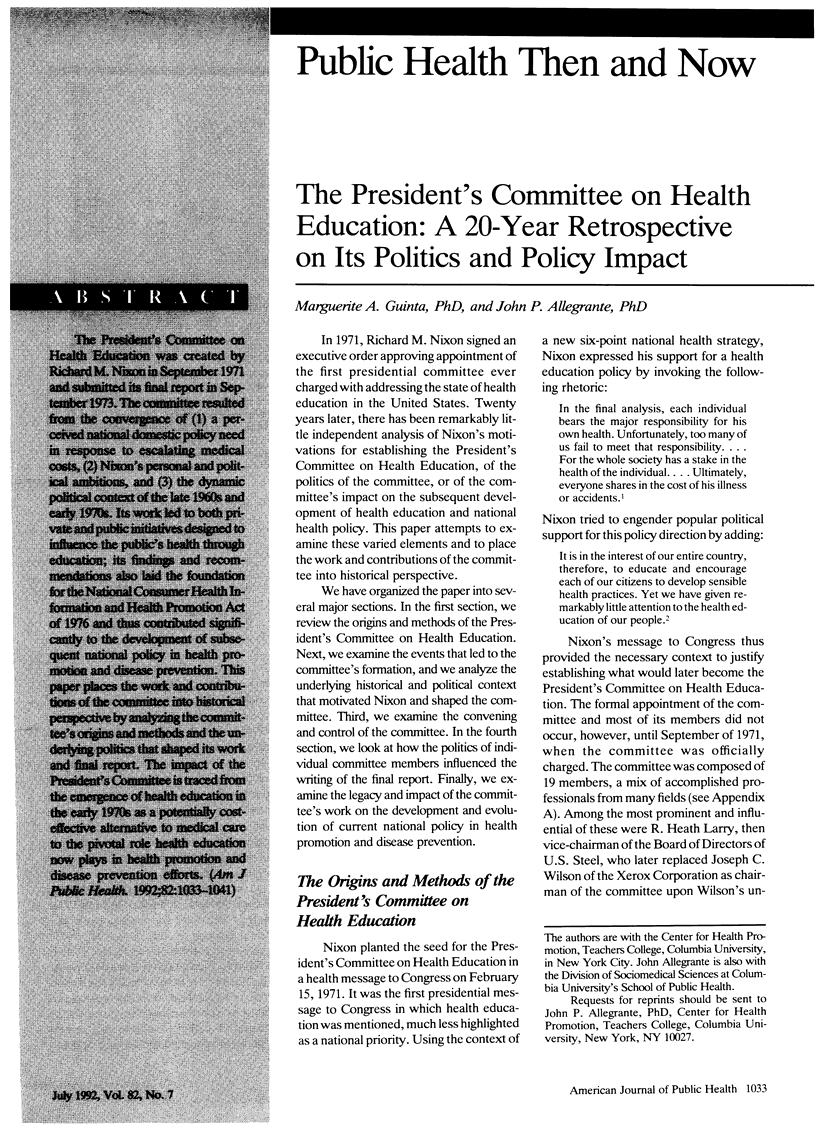
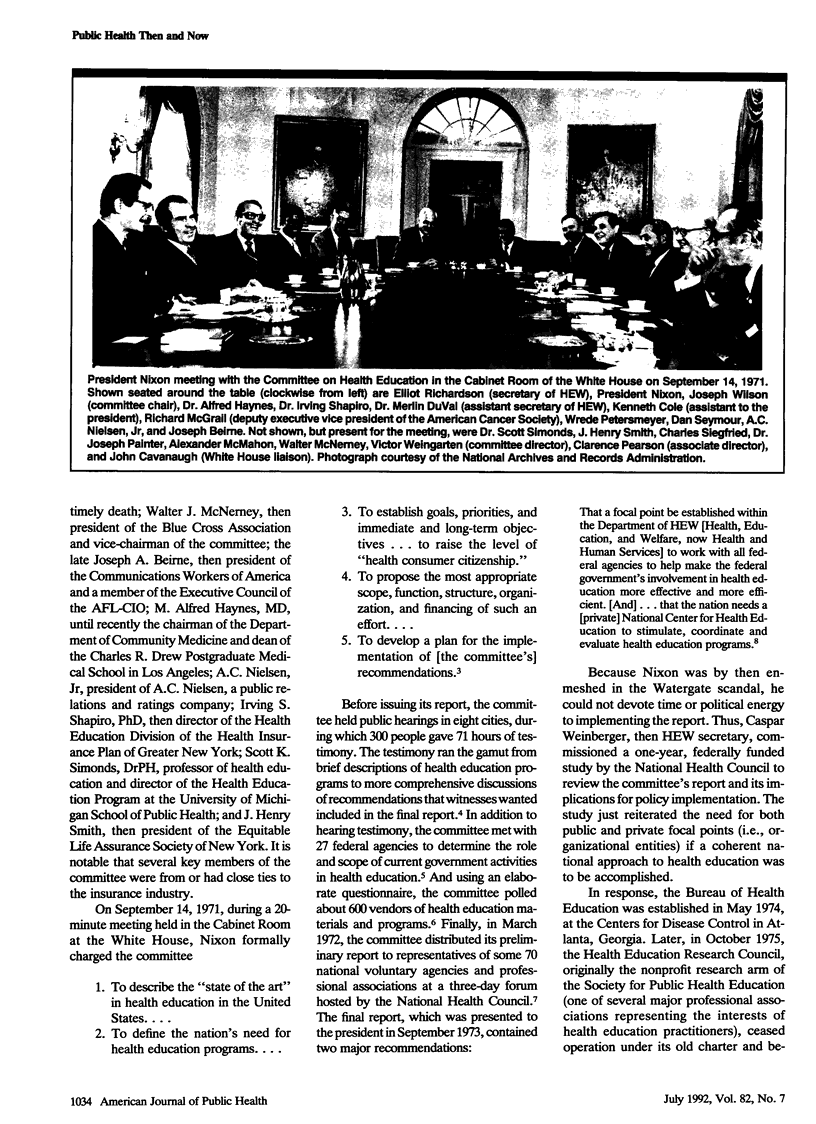
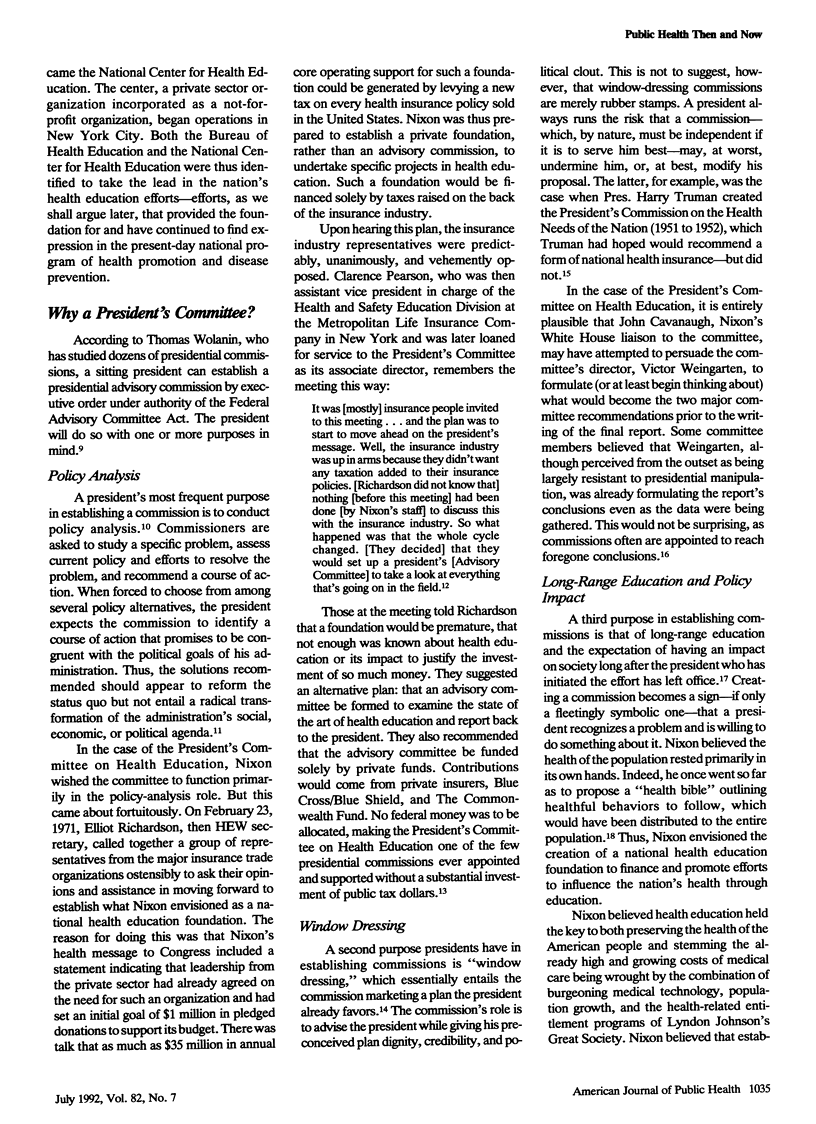
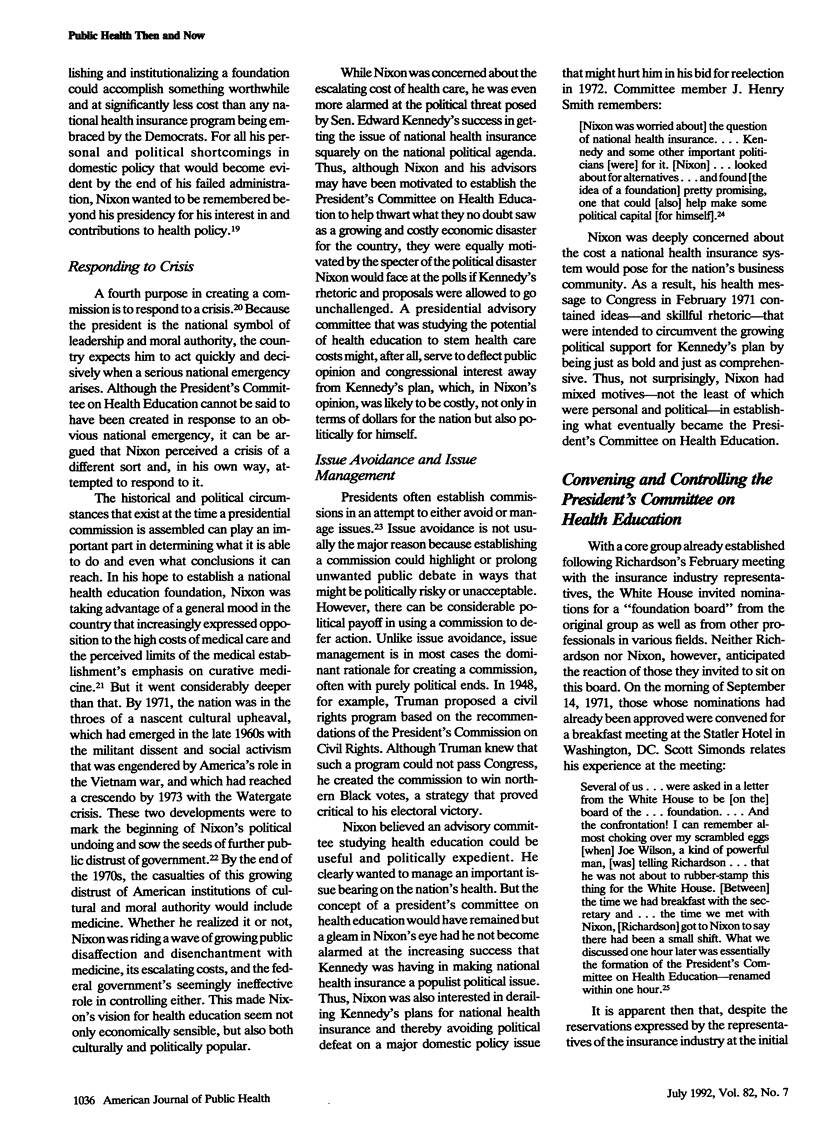
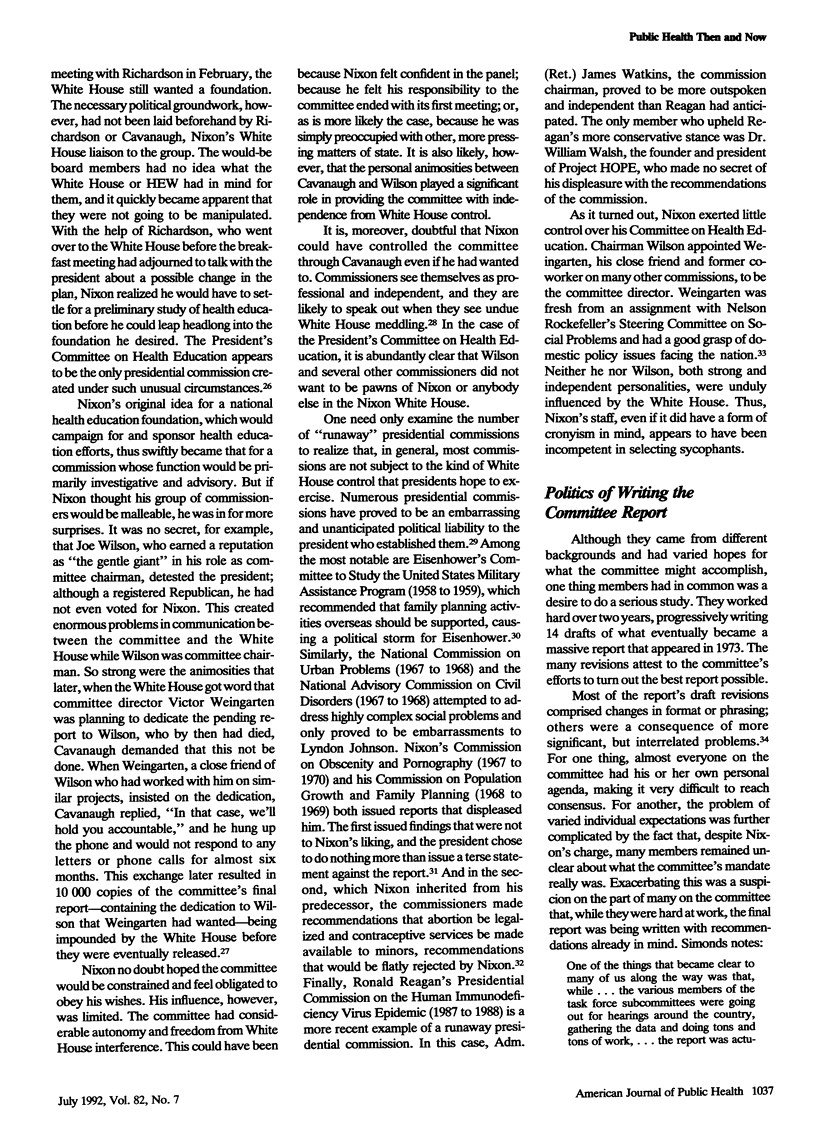
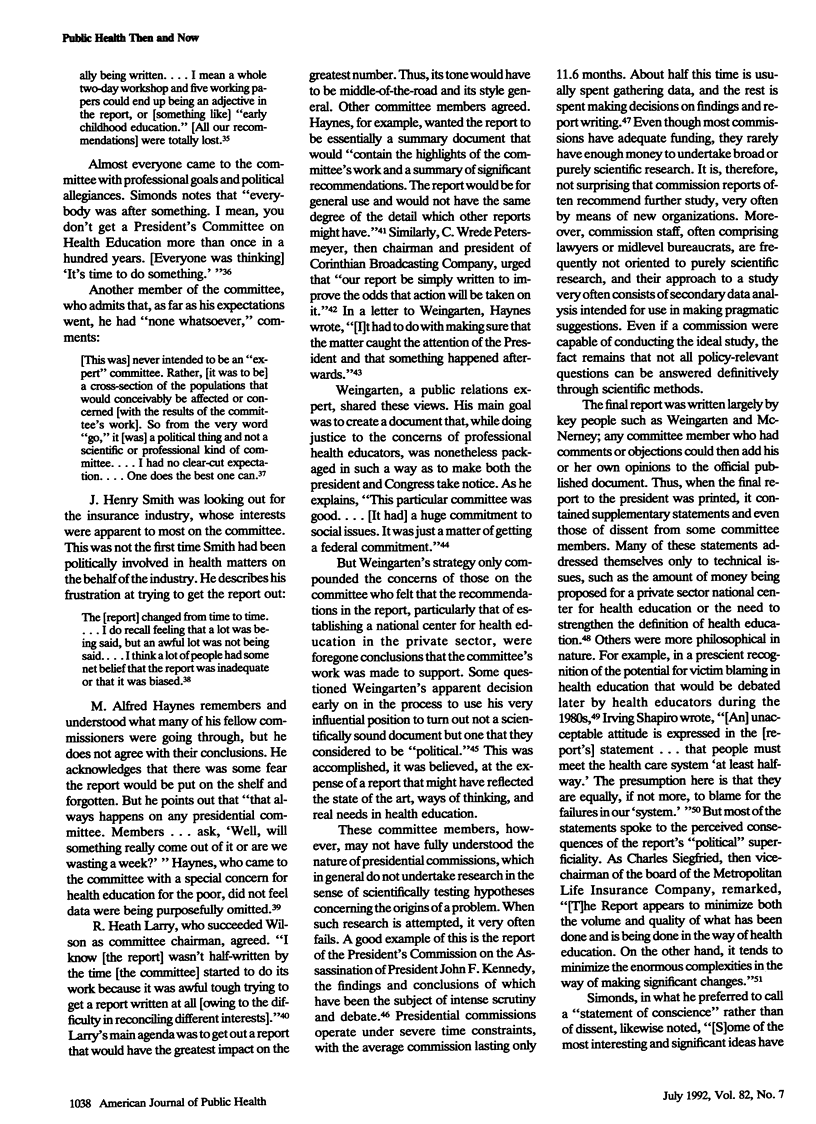
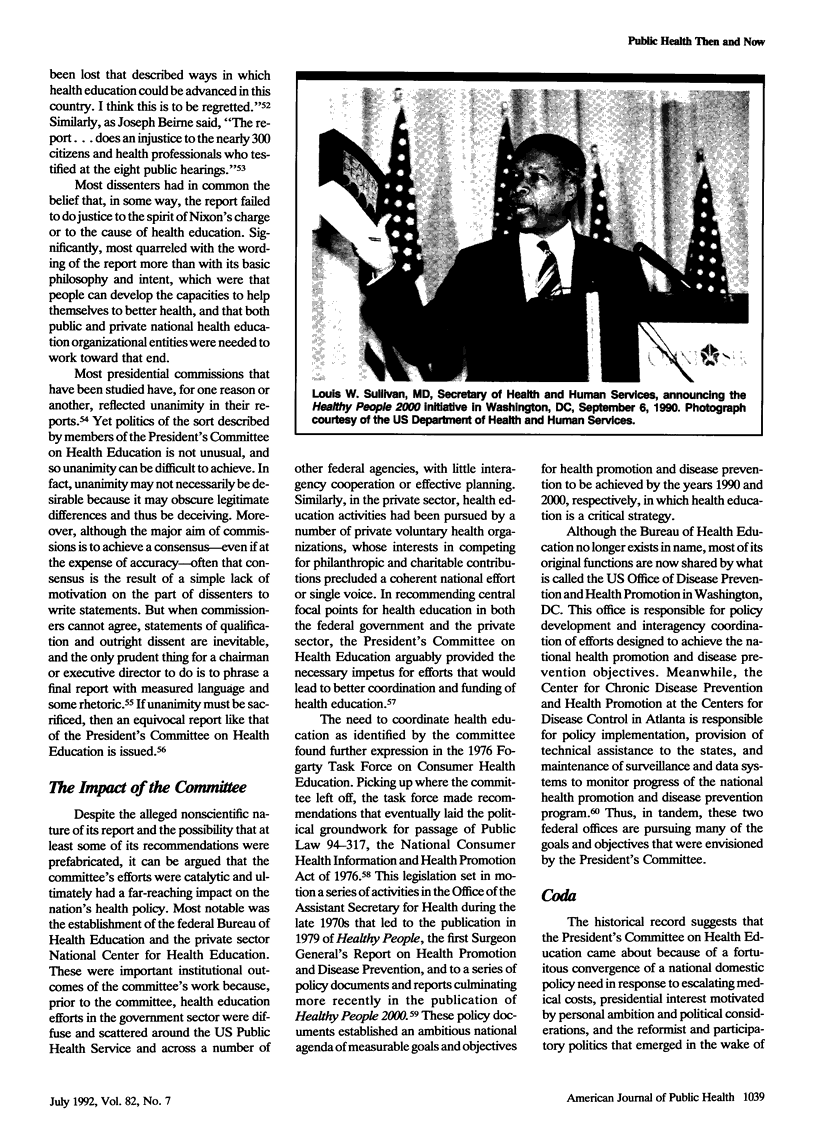
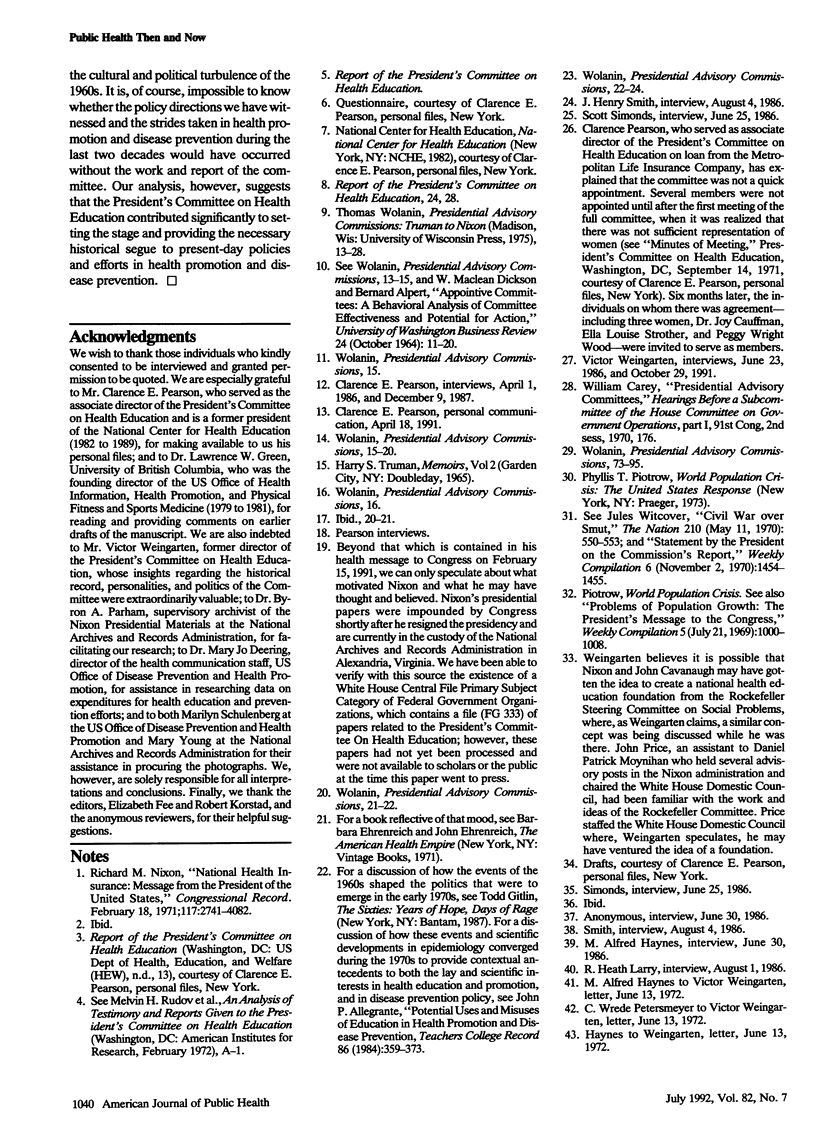
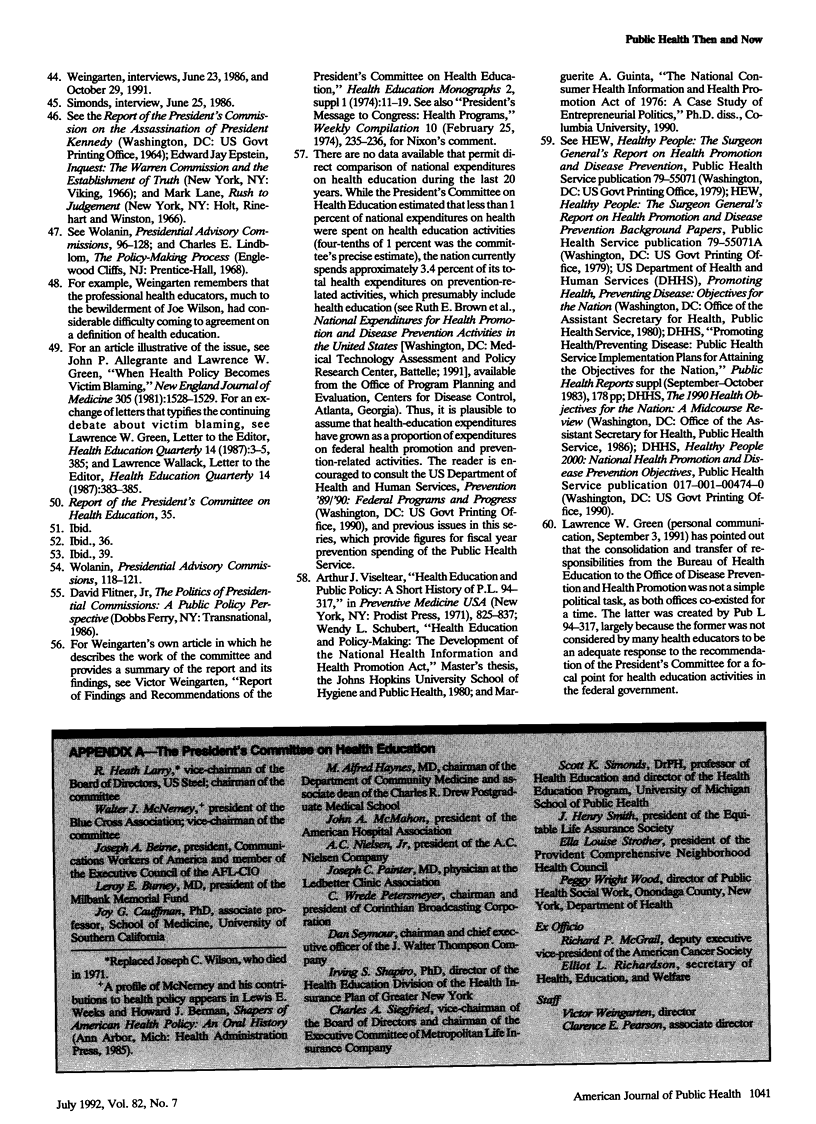
Images in this article
Selected References
These references are in PubMed. This may not be the complete list of references from this article.
- Allegrante J. P., Green L. W. Sounding board. When health policy becomes victim blaming. N Engl J Med. 1981 Dec 17;305(25):1528–1529. doi: 10.1056/NEJM198112173052511. [DOI] [PubMed] [Google Scholar]




